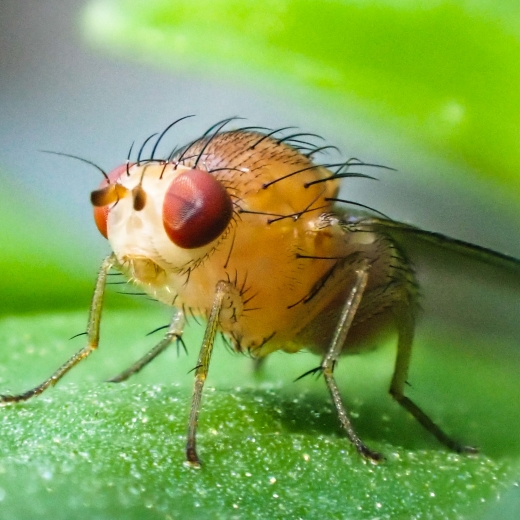A USC insect ecologist will coordinate the Queensland branch of a new research project calling on school students to help identify mystery insect species in their regions.
Research Fellow Dr Andy Howe of USC’s Forest Industries Research Centre today helped launch the citizen science project ‘Insect Investigators’ as part of National Biodiversity Month.
The project, led by the South Australian Museum Honorary Researcher and University of Adelaide Postdoctoral Fellow Dr Erinn Fagan-Jeffries, will connect scientists with 50 schools selected across South Australia, Queensland and Western Australia so young students can discover and document their local insect biodiversity.
Dr Howe, who lives in Brisbane and works at USC Sunshine Coast, said he was now seeking applications from regional and remote schools in Queensland to be part of the research.
“The selected schools will set up and run an insect trap on or near their school property in Term 1 next year,” he said.
“Only 30 percent of insects in Australia have been formally and scientifically identified and we need citizen scientists to help us increase that number.”
Dr Howe worked for 10 years at the University of Copenhagen before starting at USC in 2020, where he currently works on biocontrol in forestry, and invasive insect species.
“I am fascinated by insects and the many functions they have in the environment,” he said.
“Unfortunately, human activities have negative impacts on insect biodiversity, but knowing what’s out there is important for insects and our future.
“We hope this project can empower children and inspire connections to the wonders of the insect world around us.”
Dr Howe said ‘Insect Investigators’ would engage primary and secondary students and their teachers in the study of insect biodiversity – from their own school playgrounds.
“Schools will be teamed with insect taxonomists and participate in the entire taxonomic process from insect collection to identification,” he said.
“They will receive updates on their insects and online sessions with scientists during the year. On the project’s homepage, freely available resources which align with the Australian curriculum will be available to anyone interested in learning more about insect biodiversity.”
Schools wanting to apply can find details here, and submit by 15 October 2021.
‘Insect Investigators’ received grant funding from the Australian Government and involves 16 partner organisations led by the South Australian Museum.
Media enquiries: Please contact the Media Team media@usc.edu.au

